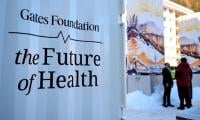47 beheaded in one day in Saudi Arabia on terror charges
Saudi grand Mufti terms executions just; Iran, al-Qaeda
warn of grave consequences; protests staged in some ME countries
RIYADH: Saudi Arabia executed 47 persons including a cleric on Saturday.
Most of the 47 beheaded were convicted of al-Qaeda attacks in Saudi Arabia a decade ago, but four, including prominent cleric Ayatollah Nimr al-Nimr, were accused of shooting policemen during anti-government protests in recent years.
The executions took place in 12 cities in Saudi Arabia. The bodies were then hanged from gibbets in the most severe form of punishment available in the kingdom’s law.
Riyadh’s main regional rival Iran and its allies immediately reacted with condemnation of the execution of Nimr, and Saudi police raised security in a district where his followers are in a majority in case of protests, residents said. Al-Qaeda in a December statement had already warned of grave consequences if its activists were hanged.
The executions seemed mostly aimed at discouraging Saudis from jihadism after bombings and shootings by militants in Saudi Arabia over the past year killed dozens and Islamic State called on followers in the kingdom to stage attacks.
The simultaneous execution of 47 people on security grounds was the biggest mass execution for such offences in Saudi Arabia since the 1980 killing of 63 militant rebels who seized Makkah’s Grand Mosque in 1979. The 43 militants executed included several prominent al-Qaeda figures, including those convicted of responsibility for attacks on Western compounds, government buildings and diplomatic missions that killed hundreds from 2003-06. However, the execution of four, including Nimr, who were convicted of shooting and petrol bomb attacks that killed several policemen during anti-government protests in Qatif district from 2011-13, provoked an immediate response abroad.
Yemen’s Houthi group described Nimr as a “holy warrior” and Lebanese militia Hezbollah said Riyadh had made “a grave mistake”.
Saudi police increased security in Qatif district of Eastern Province, residents said, site of the protests from 2011-13 which resulted in killing of several policemen as well as over 20 local demonstrators.
Bahrain police fired tear gas at several dozen people protesting against the execution of Nimr, a witness said. In a statement issued on state television and other official media, the Interior Ministry named the dead men and listed crimes that included both involvement in attacks and embracing jihadist ideology.
Mustafa Alani, a security analyst close to the Interior Ministry, commented: “There is a huge popular pressure on the government to punish those people. It included all the leaders of al-Qaeda, all the ones responsible for shedding blood. It sends a message.” Analysts have speculated that the execution of the four including Nimr was partly to demonstrate to Saudi Arabia’s majority Muslims that the government did not differentiate between political violence committed by members of the two sects.
Riyadh denies practising torture, rejects criticism of its legal process and says its judiciary is independent.
The conservative kingdom, which usually executes people by public beheading, detained thousands of militants after the 2003-06 al- Qaeda attacks, and has convicted hundreds of them. However, it also detained hundreds after protests from 2011-13, during which several policemen were killed in shooting and petrol bomb attacks.
At least three others were executed alongside Nimr, including Ali al-Rubh, who relatives said was a juvenile at the time of the crime for which he was convicted, Mohammad al-Shayoukh and Mohammad Suwaymil. Activists in the district of Qatif have warned of possible protests in response to the executions.
However, Nimr’s brother, Mohammad al-Nimr, said he hoped any response would be peaceful.
“My mobile is getting non-stop messages from friends, all shocked and angry. We know four of the names on the list. The fear is for the children among those detained,” an activist in Qatif told Reuters.
The Interior Ministry statement justified the use of execution and state television showed footage of the aftermath of al-Qaeda attacks in the last decade.
Saudi Grand Mufti Sheikh Abdulaziz Al al-Sheikh appeared on television soon after to describe the executions as just. For Nimr and his companions he said executions were mercy as they were saved from committing further sins.
The executions are Saudi Arabia’s first in 2016. At least 157 people were put to death last year, a big increase from the 90 people killed in 2014.
Meanwhile, Iran summoned Saudi Arabia’s charge d’affaires in Tehran to protest the execution of Nimr al-Nimr, Iranian state television said.
Iran’s Supreme Leader Ayatollah Ali Khamenei added his voice to a chorus of condemnation by tweeting a tribute to Nimr. Seminary students marched through the Iranian holy city of Qom to protest against execution of Nimr, the Mehr news agency said. Mehr showed a photograph of dozens of men, some of them in the robes and turbans, marching through the seminary city holding up pictures of the dissident Saudi cleric.
Prominent Iraqi cleric Moqtada al-Sadr called for demonstrations in Gulf countries and in Iraq to protest the execution of Sheikh Nimr.
A German foreign ministry official expressed concern about the execution and reaffirmed the country’s view that the death penalty is an inhumane form of punishment.
In India, hundreds demonstrated in the
Muslim-majority northern province of Kashmir, where one protest organiser said the charges against Nimr were “baseless”.
-
 Prince Harry Receives Praises For Exposing Dark Side Of British Tabloids
Prince Harry Receives Praises For Exposing Dark Side Of British Tabloids -
 Andrew Forces Beatrice, Eugenie To Lose $60 Million Safety Net Saved For Retirement
Andrew Forces Beatrice, Eugenie To Lose $60 Million Safety Net Saved For Retirement -
 Nvidia CEO Jensen Huang To Visit China To Push Re-entry Into AI Chip Market
Nvidia CEO Jensen Huang To Visit China To Push Re-entry Into AI Chip Market -
 U.S. On Verge Of Losing Measles-free Title Due To Outbreak
U.S. On Verge Of Losing Measles-free Title Due To Outbreak -
 Harry Styles Excites Fans As He Announces Release Date Of New Song
Harry Styles Excites Fans As He Announces Release Date Of New Song -
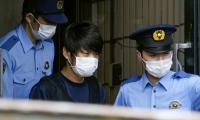 Japan’s Ex-PM Shinzo Abe’s Killer Is Set To Be Sentenced: How Much Punishment Could He Face?
Japan’s Ex-PM Shinzo Abe’s Killer Is Set To Be Sentenced: How Much Punishment Could He Face? -
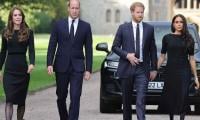 Prince Harry, Meghan Markle’s Return To UK Could Create Royal Family Dilemma
Prince Harry, Meghan Markle’s Return To UK Could Create Royal Family Dilemma -
 Prince Harry Turns Troubled With No Sense Of Home: ‘Isolation Is Getting To Him Mentally’
Prince Harry Turns Troubled With No Sense Of Home: ‘Isolation Is Getting To Him Mentally’ -
 Vitamin D Link To Respiratory Diseases Will Shock You
Vitamin D Link To Respiratory Diseases Will Shock You -
 A$AP Rocky Gives His Take On Children's Budding Personalities
A$AP Rocky Gives His Take On Children's Budding Personalities -
 Elijah Wood On Return To 'Lord Of The Rings' Universe
Elijah Wood On Return To 'Lord Of The Rings' Universe -
 Princess Beatrice, Eugenie Resort To Begging Sarah Ferguson: 'It'll Bring Disaster For The Whole Family'
Princess Beatrice, Eugenie Resort To Begging Sarah Ferguson: 'It'll Bring Disaster For The Whole Family' -
 Jenny Slate Hails Blake Lively Amid Lawsuit Against Justin Baldoni
Jenny Slate Hails Blake Lively Amid Lawsuit Against Justin Baldoni -
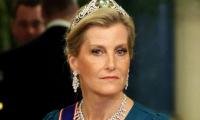 Sophie Wessex Shares 'frustration' From Early Days In Royal Family
Sophie Wessex Shares 'frustration' From Early Days In Royal Family -
 Jason Momoa's Aquaman Unseen Snap Revealed
Jason Momoa's Aquaman Unseen Snap Revealed -
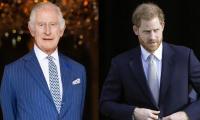 Prince Harry Taught Only Way King Charles 'will Take Him Seriously'
Prince Harry Taught Only Way King Charles 'will Take Him Seriously'



